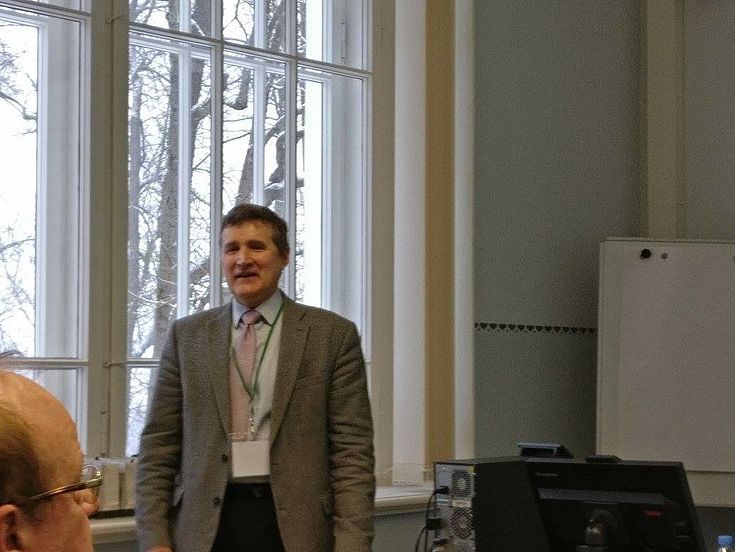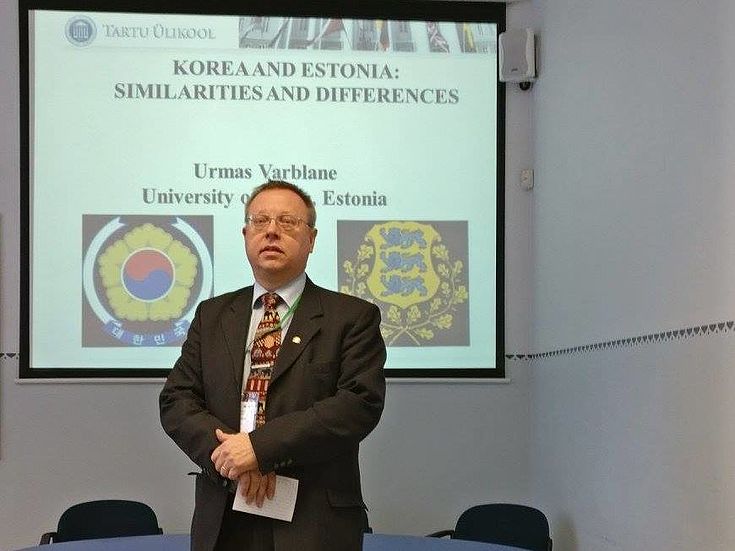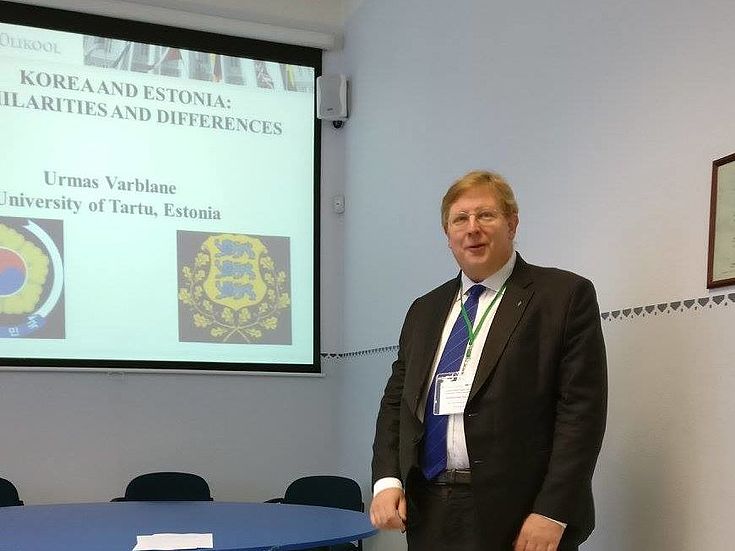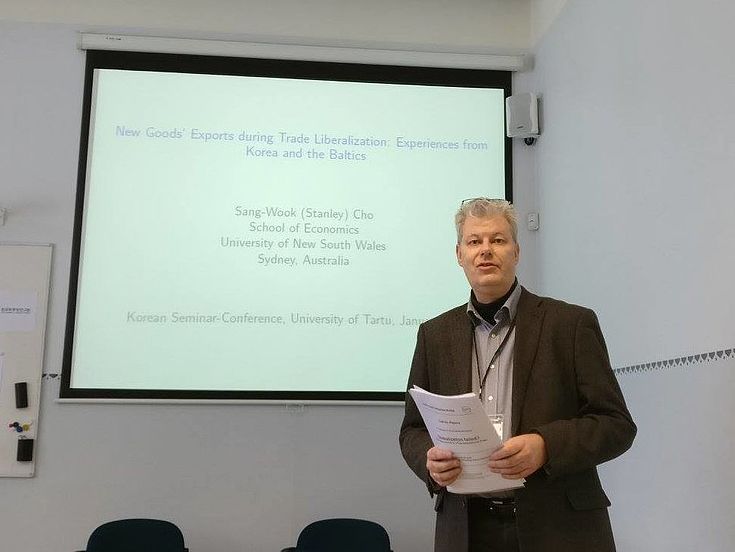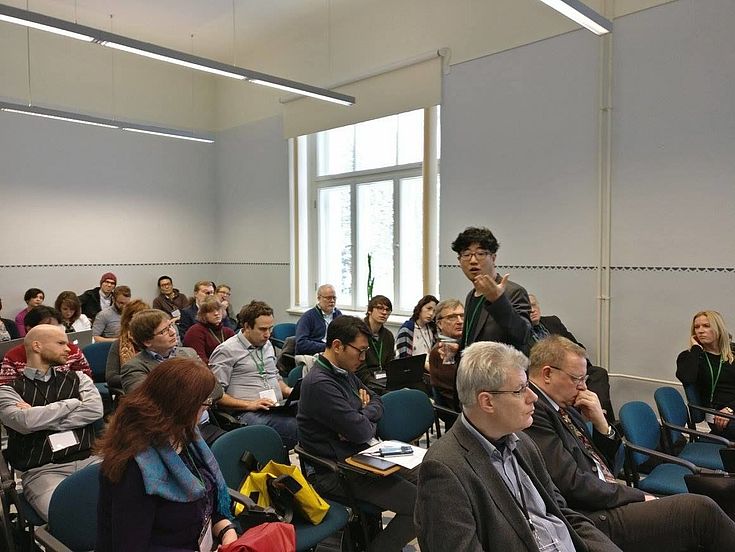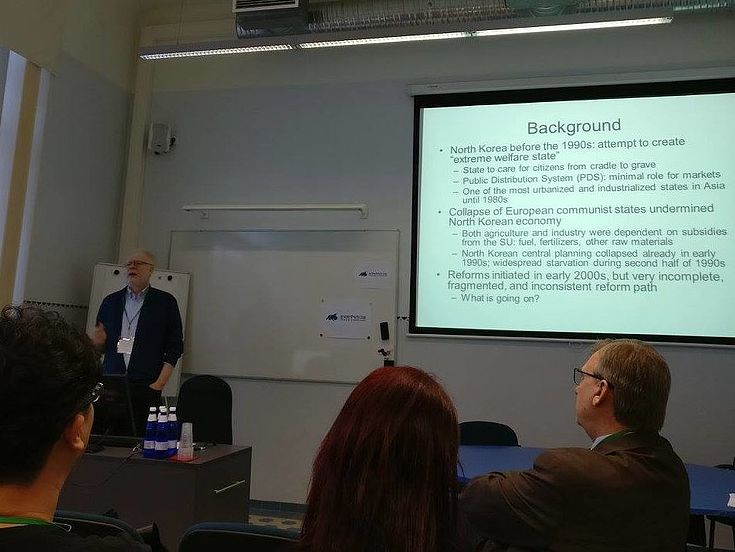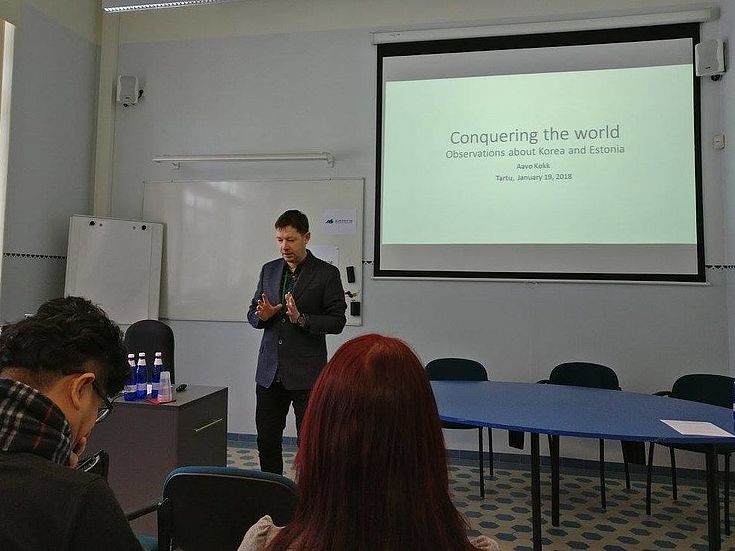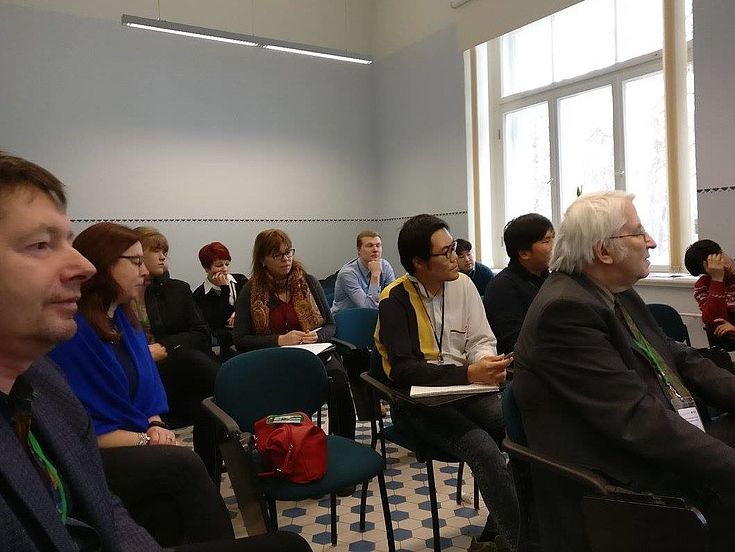Conference in Estonia
Geopolitical Changes, Economic Innovation and International Relations
Prof. Varblane greets the participants
Comparative view on Korea and Estonia
It was already the second conference at the University of Tartu with a comparative view on Korea and Estonia funded by the AKS, an initiative by Prof. Urmas Varblane of the University of Tartu, in cooperation with Dr. Bernhard Seliger (representative of Hanns Seidel Foundation Korea), among others.
Since that first conference, the University of Tartu established a very active Asia centre with regular teaching on Asian issues, among them Korea, and a growing network in the region. Estonia, a country whose very open economy depends on exports, can value this centre as an asset for the development of business relations with Asia.
Prof. Raul Eamets
The conference was opened by Prof. Urmas Varblane, who welcomed the participants, and gratefully acknowledged funding by the AKS. Prof. Raul Eamets (dean of the faculty of social sciences at the University of Tartu) pointed out the growth of relations between Estonia and East Asia in the past years. Dr. Seliger looked back at the origins of the successful cooperation with the University of Tartu.
Dr. Bernhard Seliger
The first session on "General developments in Korea, connections with Estonia and Europe" was chaired by Dr. Seliger.
First, Prof. Urmas Varblane took a comparative look at development and business indicators of Korea and Estonia. Besides some rather established results, he pointed out some interesting comparisons, among others in the fields of retirement age and challenges from an ageing society. He also showed the importance of a balanced and careful analysis of indicators, e.g. of the corruption perception index.
Afterwards, Dr. Hansoo Choi of the Korean Institute of Public Finance discussed the development and recent challenges by the Korean business conglomerates, "Chaebol".
Prof. Ralph Wrobel
The second session, „Korea and Trade“, was moderated by Prof. Ralph Wrobel of the Westsaxon University of Applied Sciences in Zwickau.
Dr. San Wook Cho of the University of New South Wales in Australia looked into the effects of trade integration and free trade agreements on the so-called new goods margin, formerly among the least traded goods.
The second presentation was by Mathias Juust, Junior research fellow at the School of Economics and Business Administration of the University of Tartu. It dealt with the EU-Korea Free Trade Agreement.
Dr. Hansoo Choi discusses with the audience
The third session, chaired by Prof. Urmas Varblane, started with a discussion of Korean FDI and trade relations with Southeast Asia, in particular with Vietnam, by Prof. Ralph Wrobel of the Westsaxon University of Applied Sciences. He pointed out the geopolitical underpinnings of FDI and trade relations, but also cultural effects and networking effects.
The second presentation by Dr. Erkki Karo, Director of the Ragnar Nurkse Department of Innovation and Governance at the Tallinn University of Technology, compared public sector strategies for innovation and development in Estonia and Korea. He looked at „public sector strategic agility“, i.e. new forms of governance and policy-making enabling innovations.
The last presentation, by PhD candidate You-Jun Shin of Tartu University, took a comparative view on e-health services as a way to improve efficiency and reduce waiting times in the health care system. Both Korea and Estonia are leading countries in e-government services, and in the health care system the wider application of internet-based services could be an important way to extend this lead into the future.
The conference also had a poster session of PhD candidates to deepen the presentations and add new aspects to them.
Prof. Ari Kokko gave an overview over special economic zones in North Korea
The second day of the conference started with a wrap-up of the first conference day by conference director Urmas Varblane.
Then, the first session looked into North Korea and geopolitics on the Korean Peninsula and in Northeast Asia. Prof. Ari Kokko of Copenhagen Business School looked into the recent establishment of special economic zones in North Korea.
Dr. Bernhard Seliger of Hanns Seidel Foundation Korea focused in his presentation on geopolitical and geoeconomic changes in Northeast Asia. While trade integration in markets does proceed, in recent years economic integration got more affected by political disputes, like the dispute about the missile defense programme THAAD in South Korea, which led to massive economic retaliation by China.
Aavo Kook talking about his experiences
The second session looked at the relation of economic and industrial systems and business development. Prof. Erik Terk of Tallinn University looked into „Value chains, specialization patters of a country and the impact of internal and external factors in the electronics industry of Estonia and Korea“. His paper was co-written by Mari Rell of the Foresight Centre of the Estonian Parliament. While comparing Korea and Estonia was comparing „an elephant and a rabbit“, it still brought interesting results, given the strong internationalization of the Estonian electronics sectors with companies like Ericson producing here.
Kim Kyung-Hun of the Korean Institute for International Economic Policy (KIEP) discussed the development of monetary policy in Korea, looking into the question of monetary policy independence.
The last presentation was by Aavo Kook, Managing Partner of Catella Corporate Finance. From his experience as networker between Korean and Estonian companies and administrations he shared his observations of differences and similarities between both sides and how these could be used to create value-added in bilateral relations.
Group discussion about improving relations
The last session, a round-table, wrapped-up the discussions of both days. All participants looked into ways how in the fields of academia, in political-administrative relations, and in business, but also in the fields of culture and tourism, relations between both sides could be improved.

